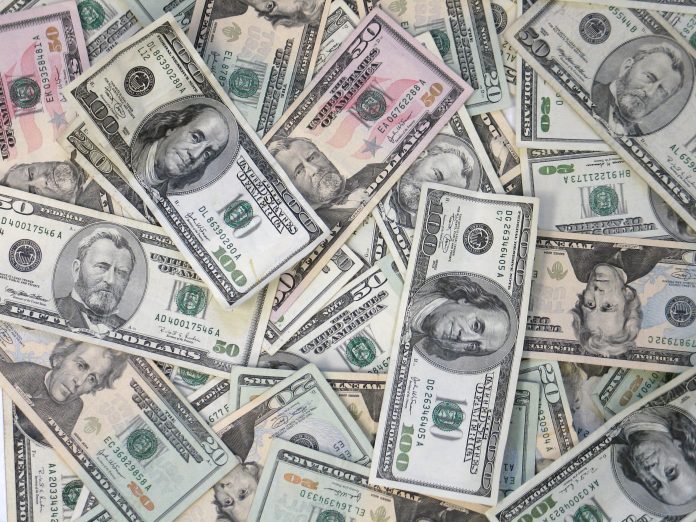When you burn a dollar bill, you aren’t really killing it, but destroying it. That being said, there is no official legal punishment for burning money and no one gets in trouble for doing it. Laws vary from country to country, state to state, and city to city. On the other hand, if you’re talking about currency of any other kind burnt in a fire or an incinerator, this would be considered illegal. For example: is it illegal to burn foreign currency , or is it illegal to burn your own money .
Destroying your cash is highly frowned upon by the government
The Federal Reserve has issued statements discouraging people from burning or mutilating bills, because it reduces the amount of money circulating in the economy and creates a burden for banks that have to collect damaged currency. “The U.S. Government does not support these actions,” a spokesperson said in 2010. “They cost taxpayers money and can potentially create more litter.”
The Treasury Department put out a similar statement this week, saying that while people can legally burn their own cash, they should be aware that doing so may lead to larger costs for everyone else: “Burning money is not only unlawful but also wasteful and harmful to the environment.”
Burning money is often a symbolic act to protest against a government
It can also be a way of showing contempt for the money itself, as in the phrase “burning up cash”.
In the United States, it is illegal to destroy money. The Currency and Foreign Transactions Reporting Act of 1970 makes it unlawful to knowingly mutilate, cut or tear any currency paper when such action is taken with the intent to render unfit for circulation or deposit.
This act does not apply only to paper currency but also includes coins. Violations are punishable by fines of up to $250,000 and/or imprisonment of up to 25 years.
About 35 countries have outlawed burning their currency in attempts to keep people from doing so
The practice of burning money is illegal in many countries, but there are some exceptions. The most common one is to burn currency as a part of a religious ritual, like in India and Nepal.
In fact, India’s government has recently taken steps to ban the practice after a man was killed by police who mistook his ash-covered face for that of a thief.
In the U.S., it’s illegal to destroy bills under federal law. Section 333 of Title 18 of the United States Code says: “Whoever mutilates, cuts, disfigures, perforates, unites or cements together, or does any other thing to any bank bill, draft, note, or other evidence of debt issued by any national banking association shall be fined under this title or imprisoned not more than six months or both.”
The idea of burning money is so offensive that some people try to buy fireproof money bags
Burning money as a form of protest is illegal in the United States. The U.S. Treasury states that it’s illegal to deface currency and that includes burning it, according to the American Bar Association Journal. In fact, you can be criminally prosecuted for doing so.
However, there are some exceptions: You can destroy old or damaged bills if they are unfit for circulation or if they have been worn out by use. But even then, you have to get permission first from the Federal Reserve and explain why you want to do it.
It is legal to burn your own money in the US, but it is illegal to destroy US currency
The United States Code states: “Whoever mutilates, cuts, defaces, disfigures, or perforates, or unites or cements together, or does any other thing to any bank bill, draft, note, or other evidence of debt issued by any national banking association, Federal Reserve Bank, or Federal Reserve System corporation created pursuant to the Federal Reserve Act, with intent to render such bank bill, draft, note or other evidence of debt unfit to be reissued shall be fined under this title or imprisoned not more than six months, or both.”
Other countries where it’s Illegal to Burn Money
It’s illegal to burn money in the United States.
The United States Mint says that it is illegal to melt down coins and currency and destroy them. This is because the federal government considers them to be legal tender, and destroying them would be an act of counterfeiting.
In France, it is illegal for anyone other than the government to burn banknotes or coins, because they are considered bearer bonds. If someone burns a banknote or coin in France, they could face up to six months in prison and a fine of up to 20,000 euros ($22,300)
Do not burn money
The practice of burning money is known as “pyromania,” and it can be a sign of mental illness.
Pyromania is defined as “a psychiatric disorder characterized by deliberate fire setting and attempts to control or suppress urges to set fires.” People with this condition often have other mental health issues, such as anxiety or depression.
Fireworks are often sold illegally in the United States, so people may think it’s okay to burn them in their backyard. However, fireworks are extremely dangerous when they’re not handled properly they can cause serious injuries or even death.
Conclusion
As long as you don’t start the fire with money that was stolen, you’re in the clear. But be aware that there are other, stricter laws against burning garbage or waste — if you use something like an expired coupon to light your cash on fire, for example, you might run afoul of the law. It’s always good to follow the local ordinances for fire safety.



 Bitcoin
Bitcoin  Ethereum
Ethereum  Tether
Tether  XRP
XRP  Solana
Solana  USDC
USDC  Cardano
Cardano  TRON
TRON  Lido Staked Ether
Lido Staked Ether  Avalanche
Avalanche  Toncoin
Toncoin